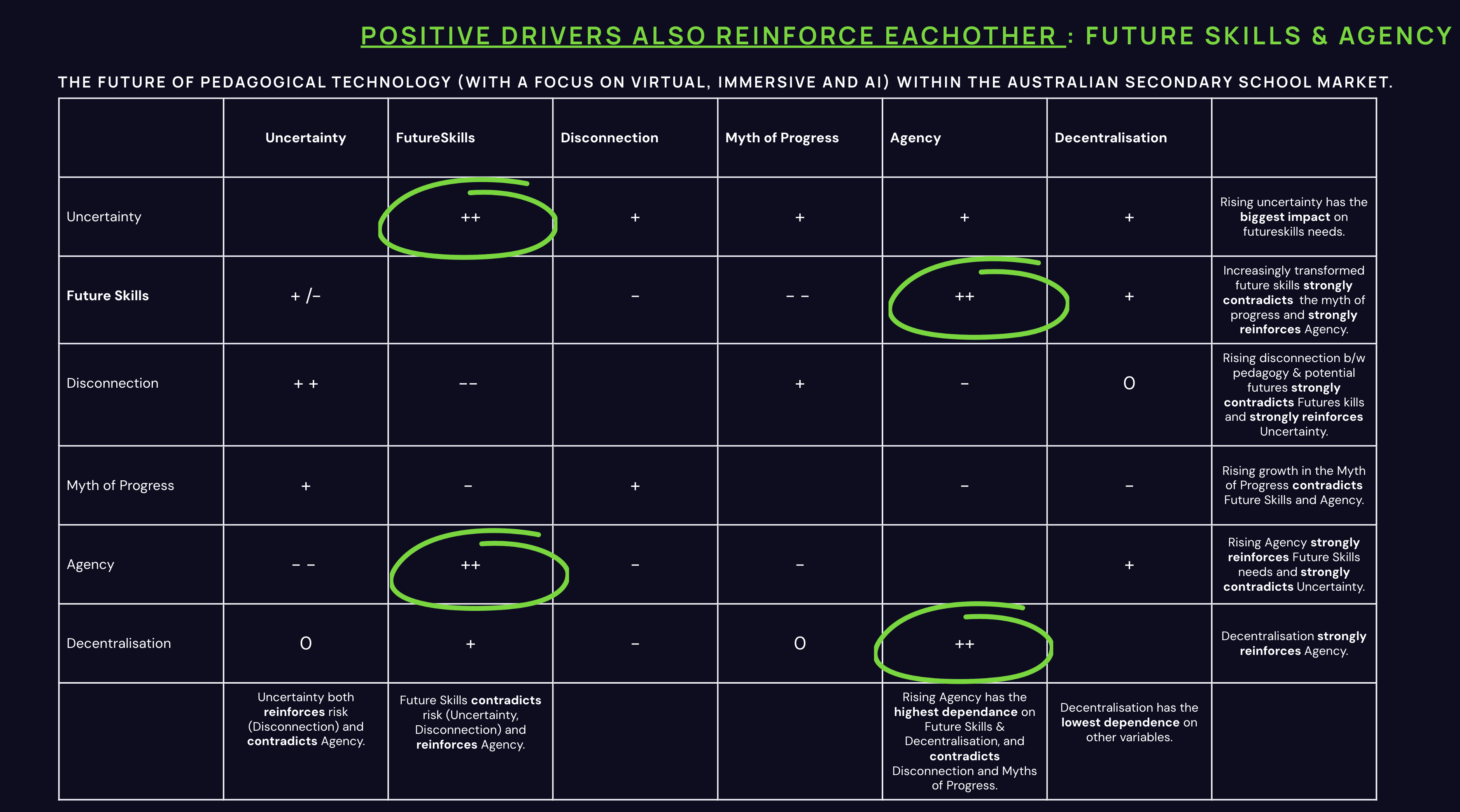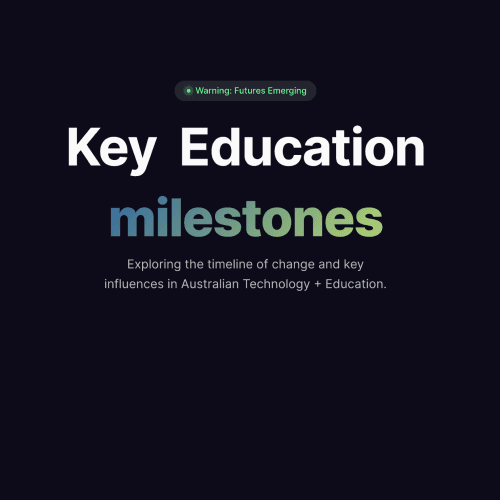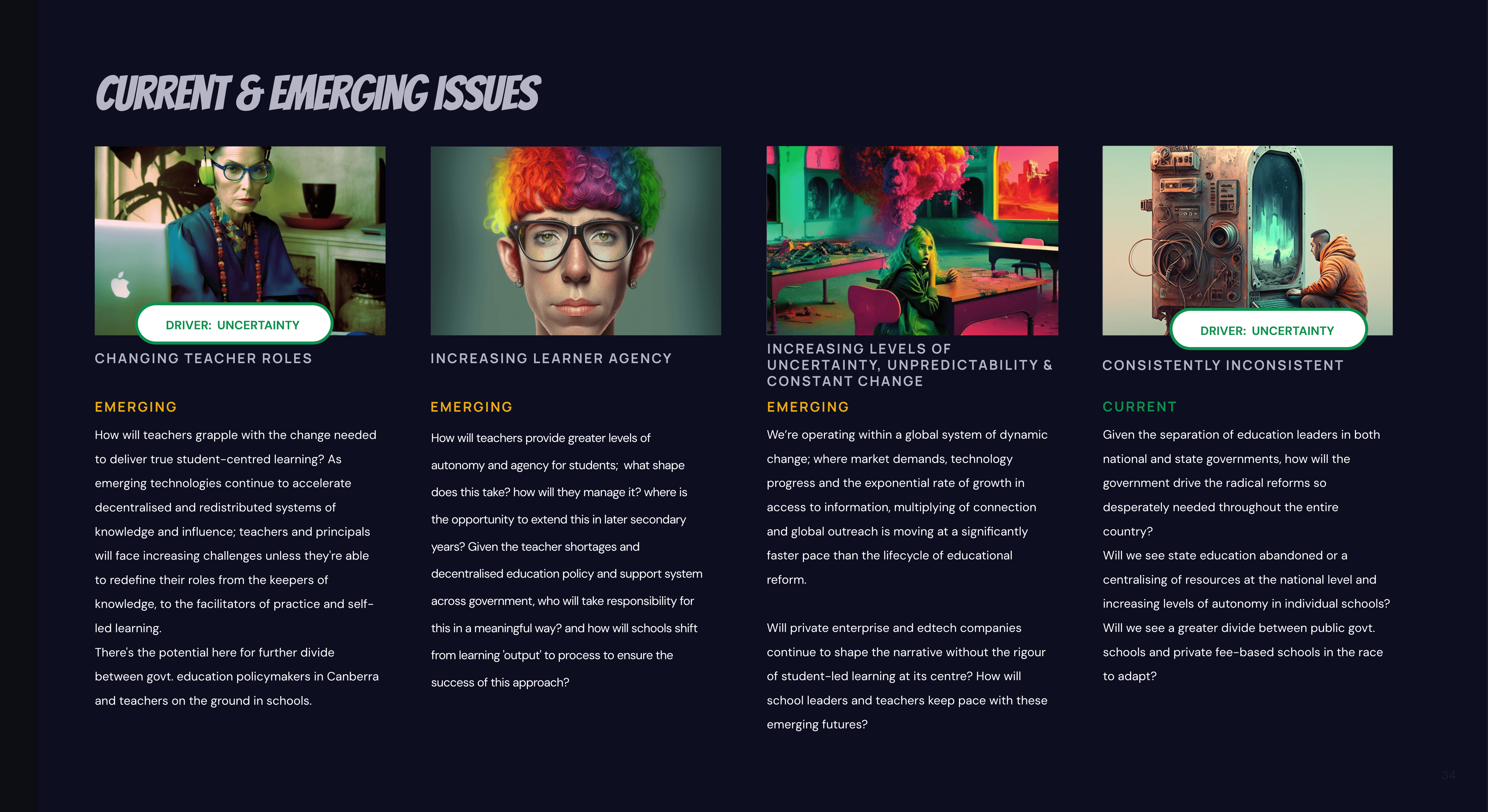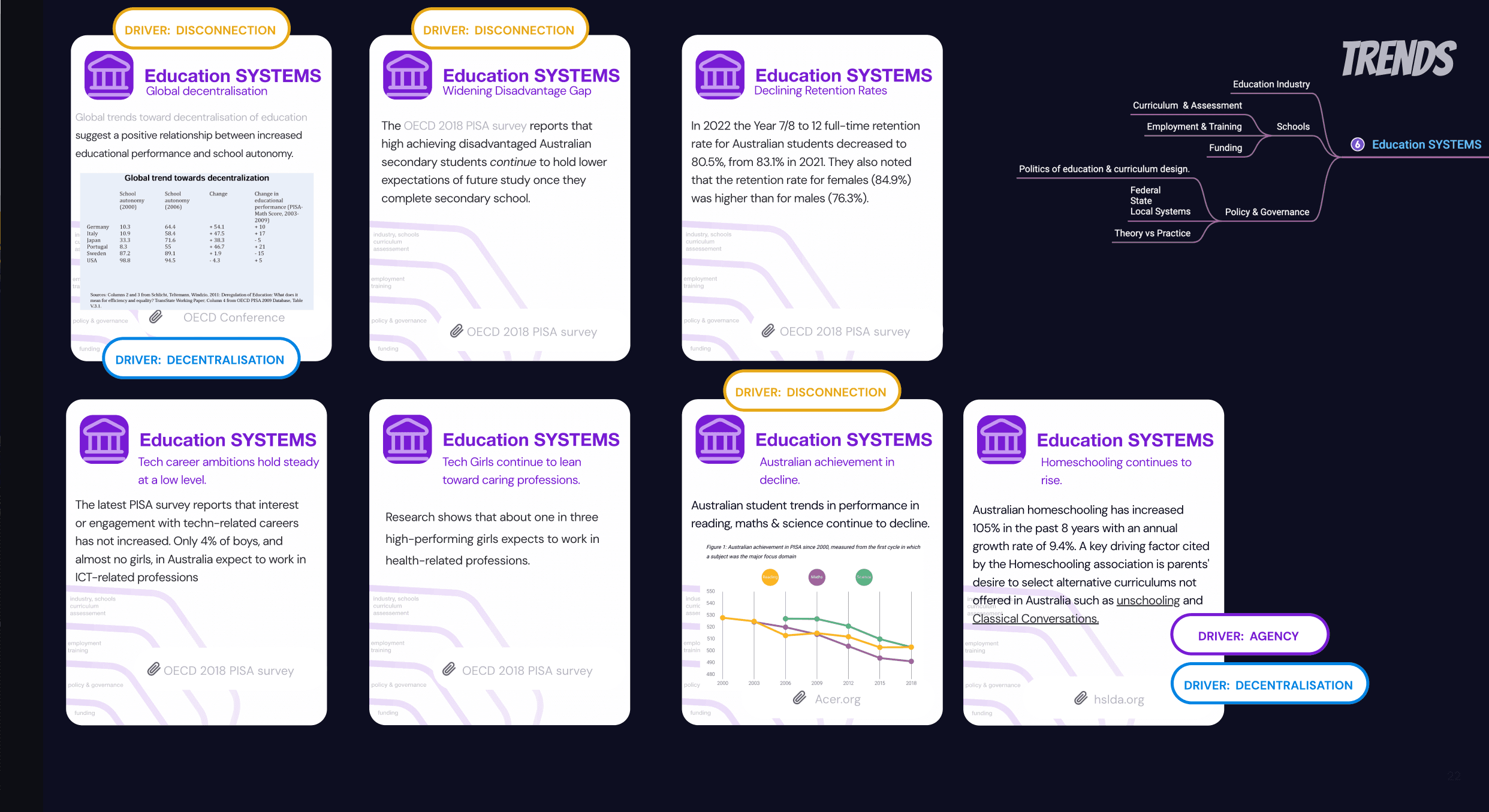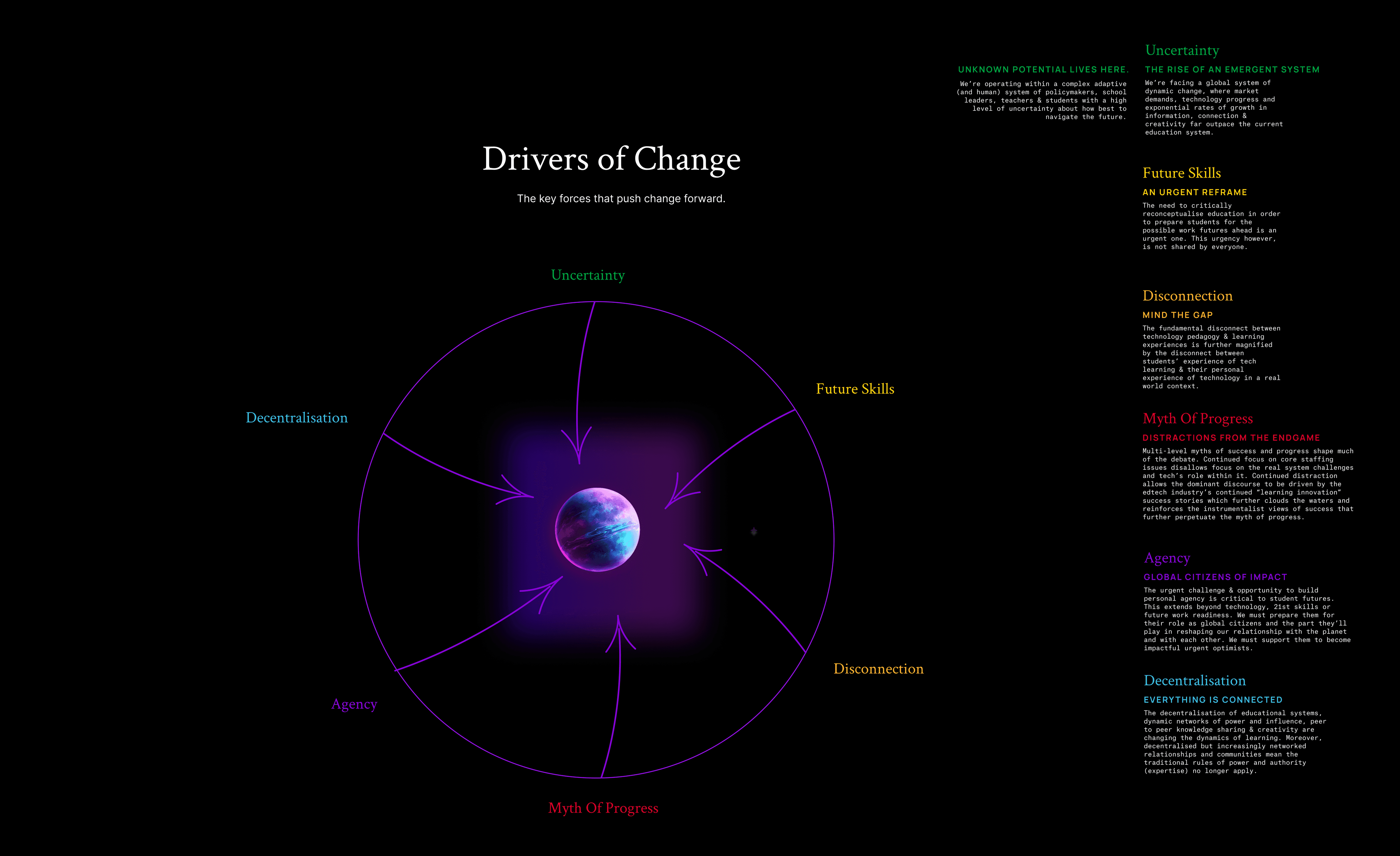
Key Drivers of Change
The research from Trends, Current + Emerging Issues, Plans and Projections culminates in a key summary of the main forces driving change in the education domain. A driver is a thematic cluster of inputs from our research (horizon scanning, trends, issues, projections and plans from within and around the domain). We use Drivers of Change as a way to identify critical uncertainties and key emerging forces that may drive or shape change as we develop our scenarios around possible futures.
UNCERTAINTY
The rise of an emergent system. Unknown potential lives here. We’re facing a global system of dynamic change, where market demands, technology progress and exponential rates of growth in information, connection & creativity far outpace the current education system. We’re also operating within a complex adaptive (and human) system of policymakers, school leaders, teachers & students with a high level of uncertainty about how best to navigate the future.
FUTURE SKILLS
An Urgent Reframe. The need to critically reconceptualise education in order to prepare students for the possible work futures ahead is an urgent one. This urgency however, is not shared by everyone.
DISCONNECTION
Mind the Gap. The fundamental disconnect between technology pedagogy & learning experiences is further magnified by the disconnect between students’ experience of tech learning & their personal experience of technology in a real world context.
MYTH OF PROGRESS
Distractions from the Endgame. Multi-level myths of success and progress shape much of the debate. Continued focus on core staffing issues disallows focus on the real system challenges and tech’s role within it. Continued distraction allows the dominant discourse to be driven by the edtech industry’s continued “learning innovation” success stories which further clouds the waters and reinforces the instrumentalist views of success that further perpetuate the myth of progress.
FUTURE SKILLS
An Urgent Reframe. The need to critically reconceptualise education in order to prepare students for the possible work futures ahead is an urgent one. This urgency however, is not shared by everyone.
AGENCY
Global Citizens of Impact. The urgent challenge & opportunity to build personal agency is critical to student futures. This extends beyond technology, 21st skills or future work readiness. We must prepare them for their role as global citizens and the part they’ll play in reshaping our relationship with the planet and with each other. We must support them to become impactful urgent optimists.
DECENTRALISATION
Everything is Connected. The decentralisation of educational systems, dynamic networks of power and influence, peer to peer knowledge sharing & creativity are changing the dynamics of learning. Moreover, decentralised but increasingly networked relationships and communities mean the traditional rules of power and authority (expertise) no longer apply.
Key Drivers Map
You can see key data points from the TIPPs research stages (Trends, Inputs, Plans + Projections) mapped onto the key driver chart here.
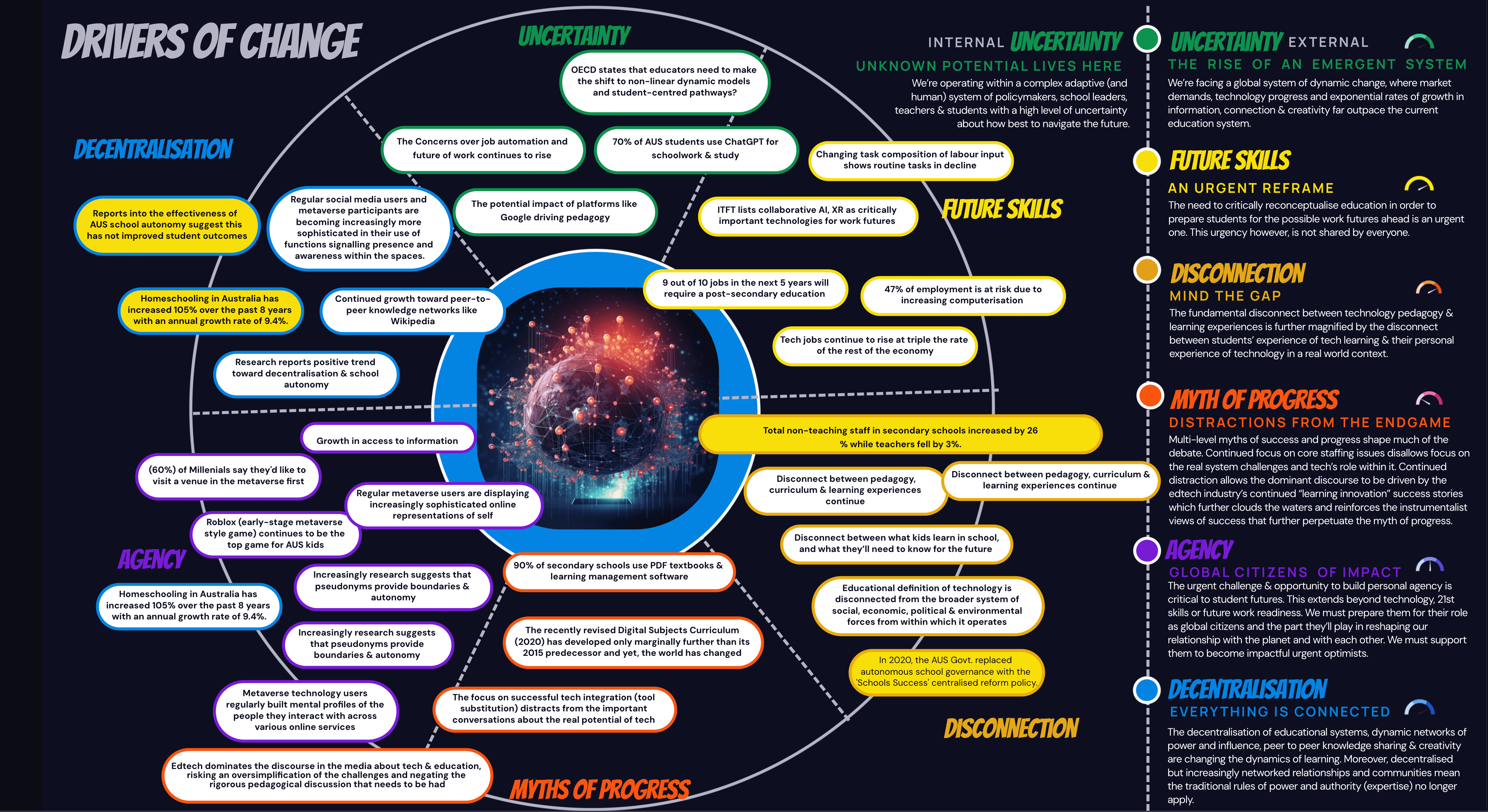
Cross Impact Matrix
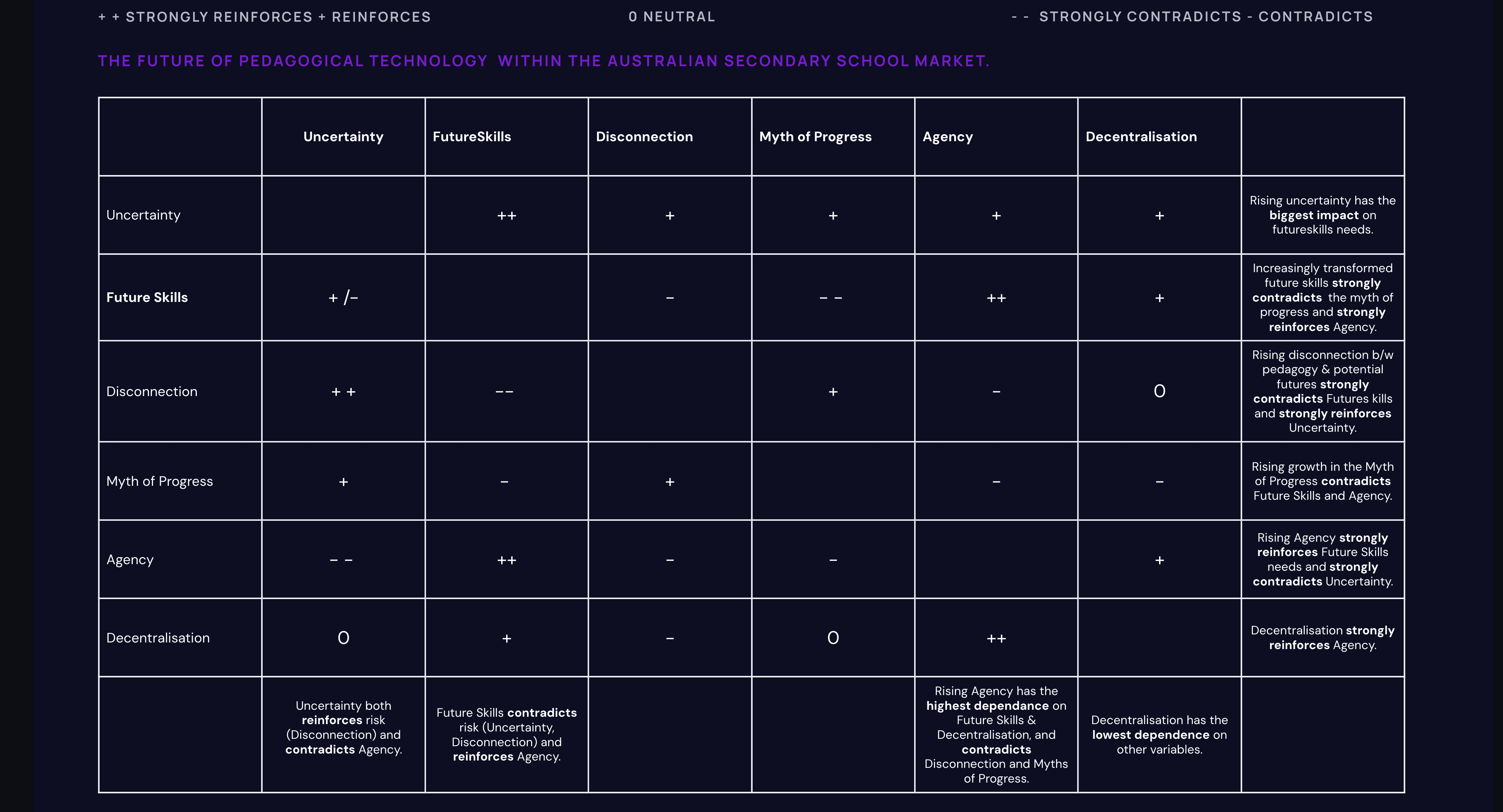
You can see in the chart above that some drivers positively reinforce each other, whilst others contradict each other:
Uncertainty both reinforces risk (Disconnection) and contradicts Agency.
Future Skills contradicts risk (Uncertainty, Disconnection) and reinforces Agency.
Rising Uncertainty has the biggest impact on Future Skills needs.
Increasingly transformed Future Skills strongly contradicts the Myth of Progress and strongly reinforces Agency.
Rising Disconnection b/w pedagogy & potential futures strongly contradicts Futures Skills and strongly reinforces Uncertainty.
Rising growth in the Myth of Progress contradicts Future Skills and Agency.
Rising Agency strongly reinforces Future Skills needs and strongly contradicts Uncertainty.
Decentralisation strongly reinforces Agency.
Rising Agency has the highest dependance on Future Skills & Decentralisation, and contradicts Disconnection and Myths of Progress.
The OECD identifies the development of Agency as one of the most critical in preparing students for possible futures. When we consider this in light of the key drivers which strongly contradict this, we can start to identify which drivers we can affect that might have the most impact on our goal.
Key Risk Drivers such as Uncertainty, Myth of Progress + Disconnection all potentially reinforce each other
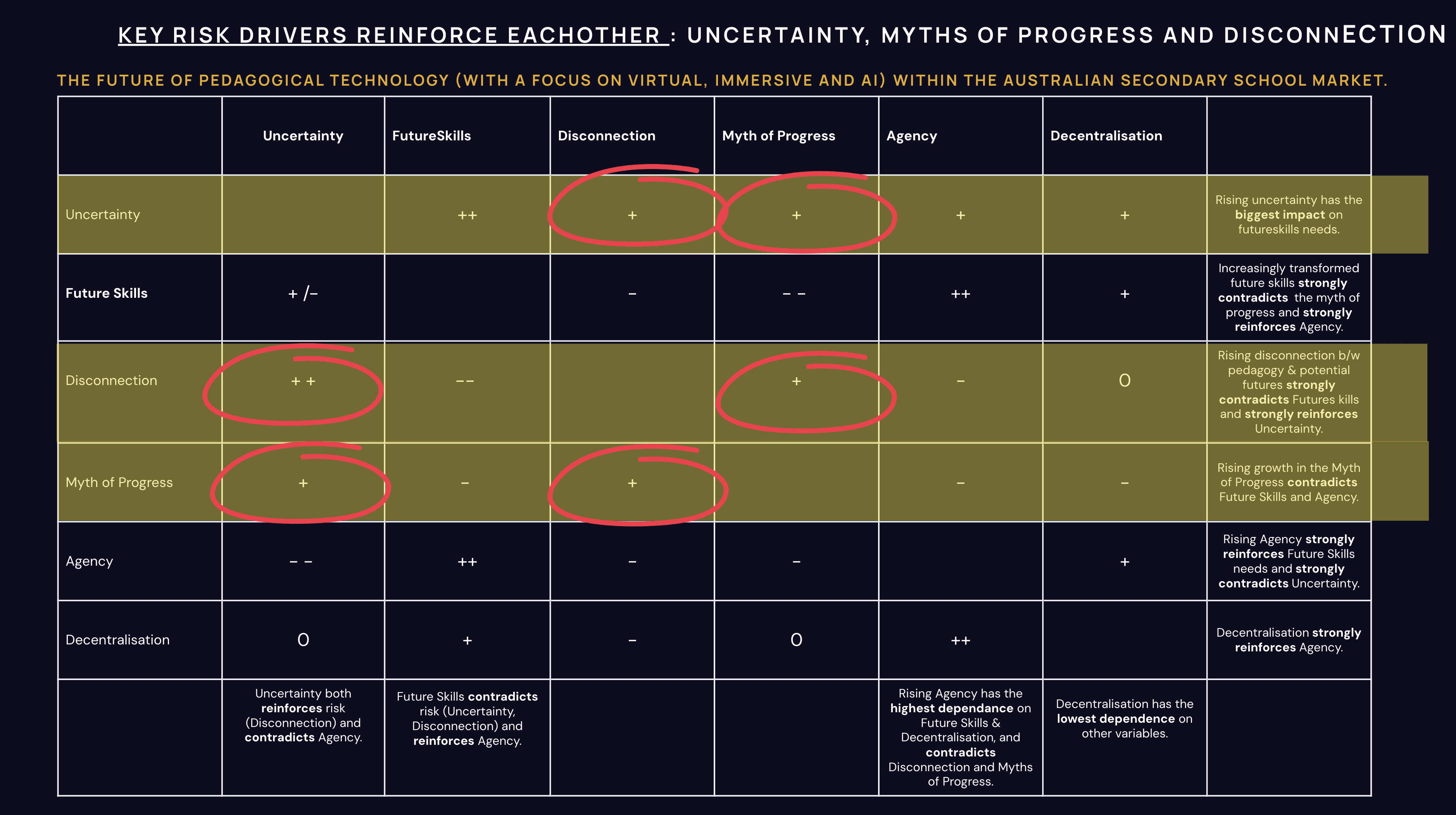
The good news is that Key Growth Drivers such as Future Skills, Agency + Decentralisation also reinforce each other
